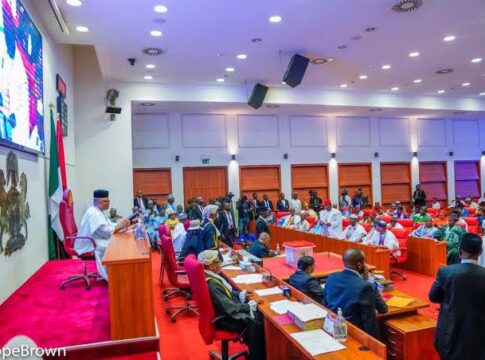Nigeria’s push for digital transformation gained momentum as 11 states scrapped Right of Way (RoW) charges for telecom operators. The move is expected to lower broadband deployment costs and improve internet access nationwide.
Minister of Communications and Digital Economy, Bosun Tijani, confirmed the development, highlighting progress since the Tinubu administration urged states to eliminate the fees. “We are optimistic that all states will comply before the end of the administration’s second year,” Tijani said.
RoW fees, paid by telecom operators to state governments for laying fibre optic cables, have been a major barrier to infrastructure expansion. Disparities in fees—ranging from the federal benchmark of N145 per meter to as high as 69 times more in some states—have slowed investments.
$2B Fibre Optic Investment to Transform Connectivity
Beyond RoW fee waivers, the federal government has committed $2 billion to extend 90,000 kilometres of fibre optic cables, making Nigeria’s broadband network the third-largest in Africa, behind South Africa and Egypt.
“The government’s goal is nationwide coverage, and we are making real progress,” Tijani said, revealing that the World Bank has already committed $500 million to the project. With support from the Ministry of Finance, the initiative aims to close Nigeria’s digital divide.
READ MORE: EFCC Restores Over $120,000, N70.6M to Fraud Victims in U.S., Spain, and Switzerland
The Global System for Mobile Communications Association (GSMA) estimates that aligning all states to the N145 per meter standard could cut national network rollout costs by 15%, further reducing internet service prices for consumers.
Tinubu’s Push for a Digital Economy
President Bola Tinubu has directed that recommendations from the Digital Economy report, presented by participants of Senior Executive Course 46 at the National Institute for Policy and Strategic Studies (NIPSS), be implemented.
“Youth empowerment is at the core of our administration. We will continue to engage the Institute as a Think Tank to drive innovation,” Tinubu stated.
Among the key recommendations are the mandatory migration of all government agencies to the OneGov.ng portal, transitioning from IPv4 to IPv6, and creating Digital Health Innovation Hubs across Nigeria. Tijani confirmed that Nigeria is on track to be one of the first African countries to fully adopt IPv6.
As more states join the push for lower RoW fees, telecom operators and internet users alike stand to benefit from improved connectivity, lower costs, and an accelerated digital economy.




